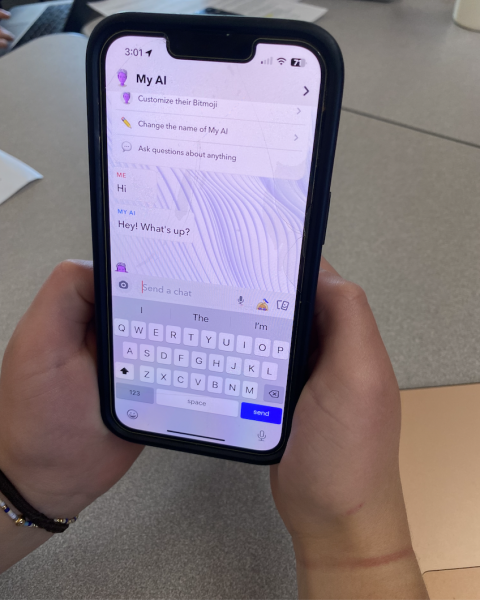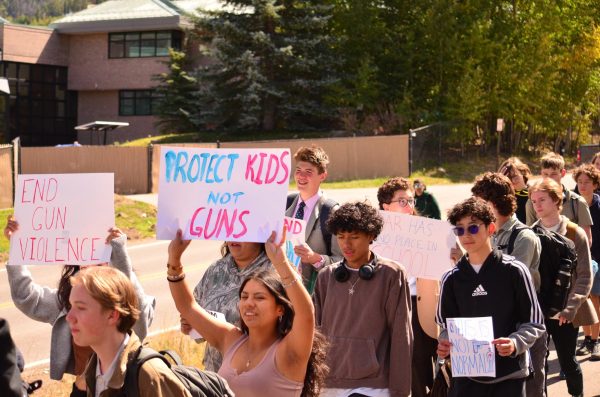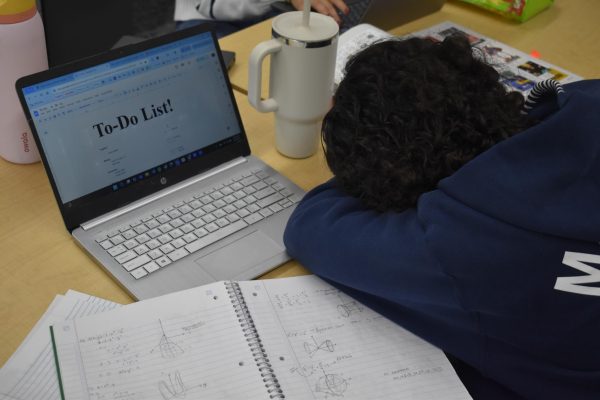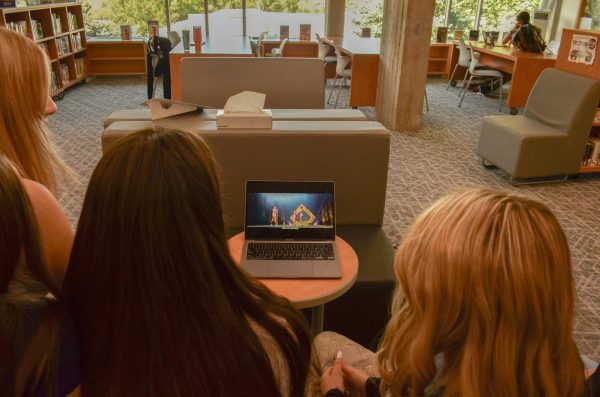The Electoral College: a failure of democracy
A representation of how the Electoral College suppresses democracy in the United States.
In the 2020 election, Colorado voters will see Colorado Proposition 113, the National Popular Vote Interstate Compact, on their ballots. The proposition will determine if Colorado will use the popular vote system rather than the Electoral College. The topic has sparked debate around whether the Electoral College should continue to exist in our current political climate. While it is difficult to imagine our voting system differently, the Electoral College is plagued with issues that impede the principles of democracy. Voters should vote yes to Proposition 113 to breathe life back into our democratic processes.
The Electoral College was created in 1787 by the Framers of the Constitution as an alternative to electing the president by popular vote. The intended purpose was to balance out the ballot, as smaller states feared larger states would dominate the election. To “solve” the issue, the Founding Fathers created a system where each state possessed Electoral College votes proportional to the number of senators and house members. This served as an advantage to the smaller states since each state has two senators regardless of size.
Additionally, the Electoral College was created because information moved slowly throughout the United States. Electors were sent to Washington to stay up to date with the news and ultimately vote for people as they were more informed. This was a reasonable prospect for the 1700s. However, now, with information moving at the speed of light rather than the speed of horseback, the system has become obsolete. Voting citizens have access to knowledge with the stroke of their fingertips and no longer need a representative to make their decisions.
Not only are electors unnecessary, but they also have a record of unreliability. Many states have no laws requiring electors to vote the same way as their state, according to the Brookings Institution. Since the beginning of the Electoral College, there have been 165 instances of rouge voting as of 2016. In the chaos of the 2016 election, ten members of the Electoral College voted or attempted to vote for a candidate different from their state’s popular vote. Seven of the unfaithful votes counted, while the other three were discredited. Hillary Clinton lost five of her pledged electors, and President Trump lost two. While that is not nearly enough Electoral votes to change the outcome of the election, it is still imperative to recognize this as a failure of democracy. With the upcoming election, how can we ensure that electors will not repeat their behavior? The fate of our country should not be determined by an honor system that has failed 165 times, and will likely continue to fail.
As mentioned previously, the population mandates the number of electors each state receives. However, the Census (the official count of the population) only happens every ten years. This creates an issue as each state’s population size has the potential of becoming unrepresentative as states decrease or increase in size. For instance, according to the Census, the population in Colorado in 2010 was 5.095 million people, but the population in 2020 is 5.8 million. With this boom in population, Colorado is projected to gain another electoral vote. Since this will not be implemented until December of 2020, a month after the 2020 election, a significant portion of Colorado voters will not be represented by the Electoral College in the election.
According to the U.S. Census, 4.4 million people live in the U.S. territories. Yet, the territories do not receive any electoral votes, despite recognizing its people as U.S. citizens. NASA astronaut Shane Kimbrough voted in the 2016 election while in SPACE, but 4.4 million people in the territories did not have the same right. The U.S. conquered their land, made a profit off their people, and forced them to become U.S citizens, but do not allow them to take part in our democratic processes…? Shouldn’t people directly impacted by the decisions of the U.S. government have a say in who governs them?
Abraham Lincoln famously said in the Gettysburg Address “Government of the people, for the people, by the people,“ but the Electoral College goes directly against this sentiment. In the 2016 presidential election, Hillary Clinton won the popular vote by nearly three million votes but lost to Donald Trump, who won the election 77 electoral votes. Similarly, in the 2000 election, Al Gore also won the popular vote but lost to George W. Bush by five electoral votes. The U.S. claims to live by Lincolns celebrated words, but how is the Electoral College system for ‘the people’ when it does not allow the people to elect the candidate they desire?
In addition to not being for the people, the Electoral College employs too much power to swing states. Each election, presidential candidates count on winning the electoral votes in certain states without worrying about popular vote totals. This means they only need to pay attention to a limited number of states. Instead of serving the country’s needs, candidates most likely cater to the swing states, undermining the foundations of democracy the U.S. was founded upon and caking the presidential election in layers of hypocrisy and irony.The presidential election is the supposed to be epitome of voter expression and American democracy, yet people’s votes are undervalued and diminished by the current system
The Electoral College is a disgrace to the ideals America prides itself on. It is a 233-year-old compromise to problems that no longer exist. The U.S. should amplify the voices of its citizens, not suppress them by an obsolete system. By voting yes to Proposition 113, Coloradans can break free of this oppressive institution and give the vote back to the people.
































